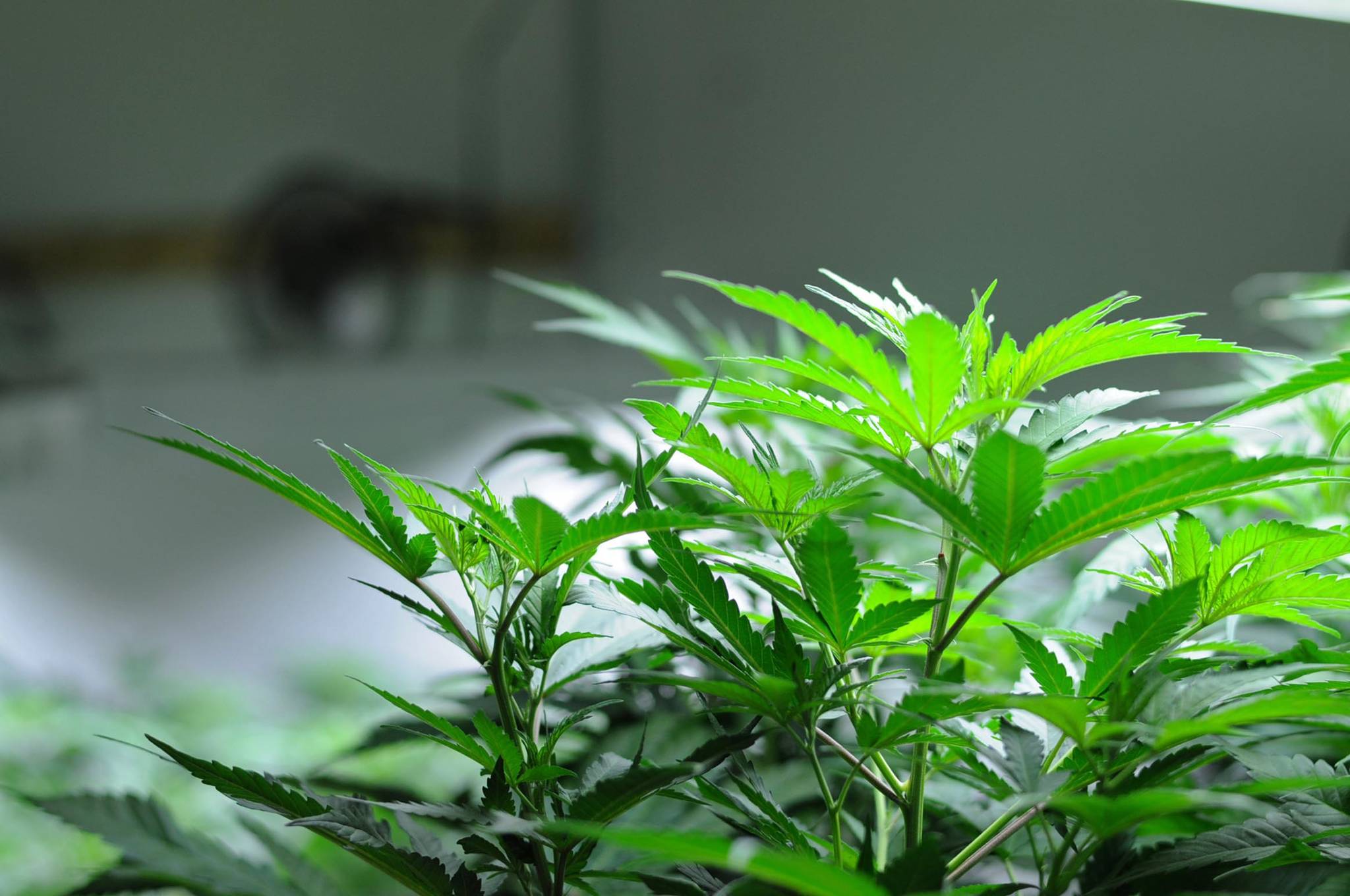A new cannabis operation in Homer is another step closer to having all the licensing it needs in order to open.
420 on Main, if fully licensed and approved by state inspectors, will be a cannabis retail, cultivation and manufacturing business located in the same building as Red Door Laundry on Main Street. It joins Uncle Herb’s in the retail market, but would be Homer’s first licensed manufacturing facility.
At its Monday meeting on Nov. 26, the Homer City Council approved a memo regarding the business’ standard marijuana product manufacturing license. An application for the license has been submitted to the Marijuana Control Board and is up for approval at the board’s next meeting on Dec. 20 in Anchorage.
Council members voted unanimously to not protest the manufacturing license. Council member Rachel Lord pointed out that the city cannot actually approve licenses, only protest them or do nothing.
The establishment’s owner, Robert “Bob” Bornt, was at the meeting and thanked the council members for their decision. Hailing from Southern California, Bornt came to the area in 2012 and bought the property on Main Street in 2014. He “spent almost three years exploring different ways to utilize the space” that is zoned mixed use by the city, he said.
Bornt is also finishing the remodeling on 14 housing units in the building, some of which will be rented out long term and some of which will be rented for the winter and then used as short-term summer rentals. 420 on Main will be the latest business added to the property.
The idea to have a cannabis grow operation actually came out of Bornt’s quest to create lower-cost housing options, he said. The housing units got to a point where it was not financially feasible to create more, so when the city approved certain cannabis operations in the Central Business District (where his building on Main Street sits) Bornt said he decided that would be his next venture.
The retail and cultivation licenses for 420 on Main have already been approved by the Alaska Marijuana Control Board. They allow his business to grow marijuana on site and to sell finished cannabis products out of the storefront. Getting a manufacturing license will allow Bornt to create products on site such as edibles.
Bornt said he plans for 420 on Main to do its own product testing before the cannabis products made in house are sent up the road to the state testing facility in Anchorage. This is a “good way of keeping customers safe and keeping them happy,” he said.
All cannabis products made in Alaska must be tested in a state facility before being sold to the public. Bornt, however, said he wants to take it a step further. Standardized testing in the marijuana industry as a whole is a bit of an issue, he said.
“The standardized structure is not as accurate as we would want as an industry,” he said. “We want to do our own testing before we send it to the lab in Anchorage.”
This will also allow 420 on Main to have a very firm handle on its product dosing, Bornt said.
“It has to go to the state lab, but we’ll know more about our product than most likely will be known by the lab,” he said.
Bornt plans on offering the standard range of products in the retail section of 420 on Main once the business is fully operational. This includes fresh buds or flowers, pre rolls, vapes and edibles.
The business will employ eight to 10 people, Bornt said. He hopes to open the retail portion of the business in April 2019, with the cultivating and manufacturing portions to follow.
“There’s a real desire to keep a high quality, public acceptable business happening,” Bornt said of the cannabis industry. “What that means is it’s not the wild west anymore.”
At Monday’s city council meeting, there were a few action items on the agenda that would have stymied Bornt’s efforts and the progression of his business. One of them was a motion to reconsider the council’s previous non-objection to the cultivation license for 420 on Main, brought forward by council member Shelly Erickson. When the time for reconsideration came, however, no one made a motion to reconsider the issue.
Another agenda item would have sent a letter to the Marijuana Control Board asking them to postpone their decision on Bornt’s cultivation license, brought forward by Heath Smith. Smith also sponsored an ordinance that sought to delete marijuana cultivation establishments from the list of establishments allowed in the city’s Central Business District. Again, when the council reached those items on the agenda, no council members made a motion to bring them to the table, and so they were declared moot. When commercial cannabis became legal in Alaska, the city updated its zoning code to regulate where marijuana activities could happen, such as banning it from the Homer Spit.
Smith had previously voiced concern about a cultivation facility causing odors and other issues for nearby land. Because the city owns land near 420 on Main, Smith also said earlier he felt the city should have been better notified of the licensing process. During his public comments at the meeting, Bornt mentioned that he had spoken with council members about the issue.
In an interview, he said the technology behind the marijuana industry has been advancing in the last few years, and that equipment used currently for cultivation eliminates the chance of gases, water or other contaminants causing issues for nearby businesses or residents.
“Those concerns have really been answered by the industry,” Bornt said. “… Here we have tenants, we have neighbors, so we really address those issues with our engineers.”
Reach Megan Pacer at mpacer@homernews.com.


